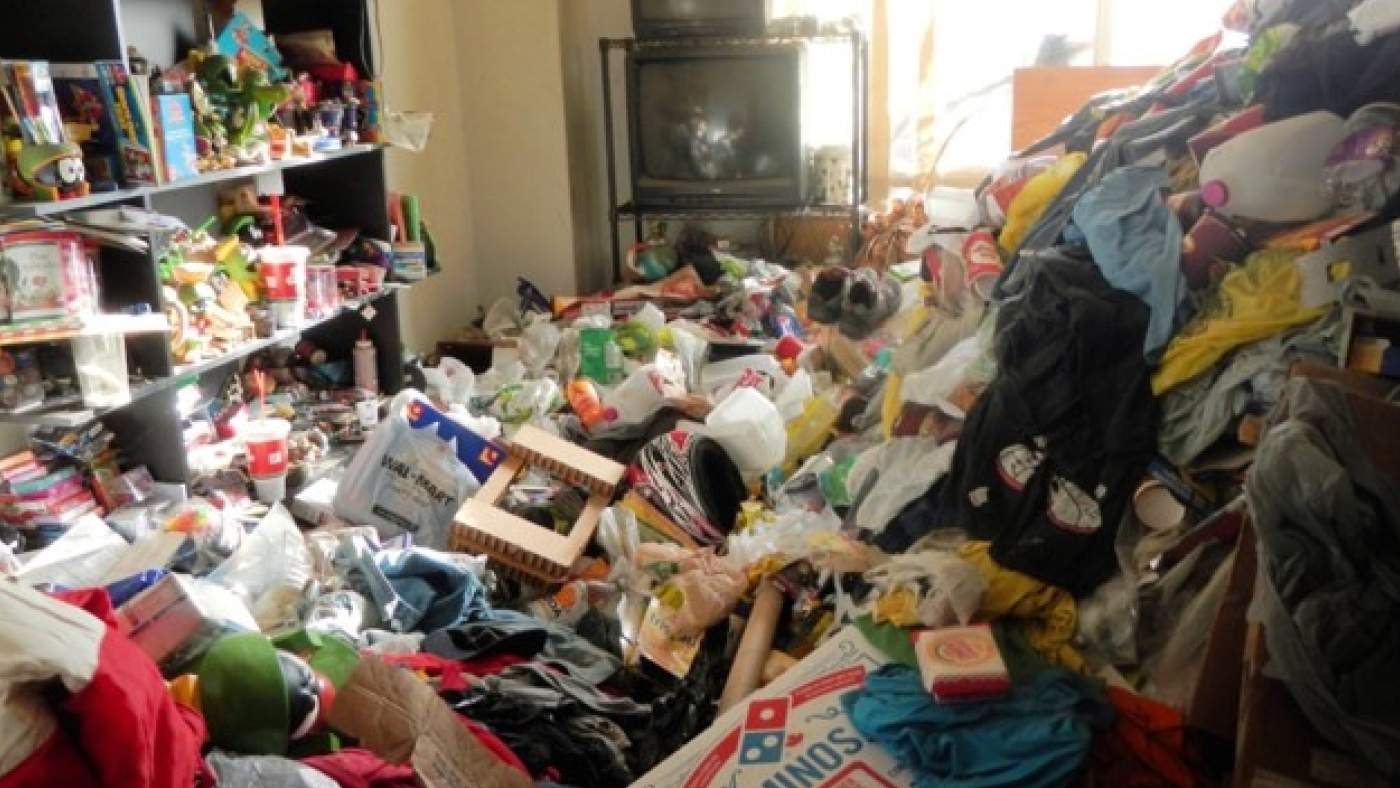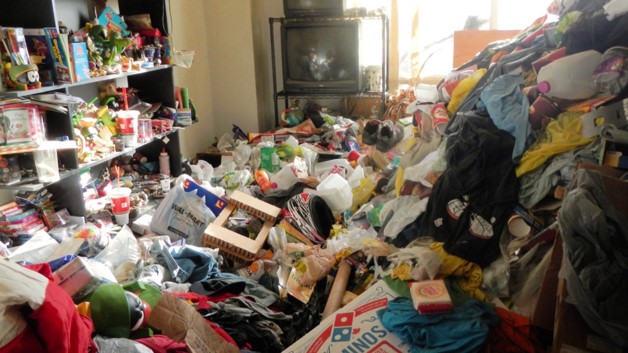Hoarding: A Costly Disease

The reality of hoarding has been brought close to home with this pandemic. Toilet paper, paper towels, and even flour has been stockpiled by many in fear that it will not be available when we need it. This is understandable given the uncertain situation. A hoarding disorder is different. It is a persistent difficulty discarding or parting with possessions because of a perceived need to save them. This is usually accompanied by distress or a high level of emotion that fuels the condition.
This may seem like an auctioneer’s dream client, but often it is exactly the opposite. Hoarders often keep items that are of nominal or no value, things other people see as trash. Hoarders can keep empty cans of tuna fish, paper bags, and, believe it or not, a bathroom tub full of gray hunter’s socks (the type with a red band across the top). I even emptied a house where the owner tied short strands of excess rope and twine together to form a huge 3’ round ball. Later, in the pantry cupboard, we found a full shoebox labeled “string too short to save” (obviously not big enough to tie to the ball’s end).
Not all hoarders assemble trash. One we encountered had a fondness for Chinese blue and white porcelain, sterling silver, and rare books. He would shop daily at various antique and rare book stores, have the items pack carefully in plastic bags, and then placed them in the middle of each room (unopened) in his colonial house, and proceeded to do the same thing the next day, until there was no middle of the room to be seen and the plastic bags began to cover the entire room 3-4 feet deep, with no way to enter or exit.
The psychological need to hoard often creates cramped living conditions, ending up with narrow pathways through canyons of stacked clutter. All surfaces are usually covered as well, including countertops, sinks, stoves, stairs, etc. Then the piles begin in garages, basements, and sheds. One client filled his house up to capacity and had to rent a motel room just to sleep. (He then proceeded to fill up four motel rooms, a tractor trailer, and storage lockers.)
The hoarding disorder affects 2-6% of our population and is more common among older adults. Often it is not discovered until after death, when an executor proceeds to enter the premises for the first time. A simple task like uncovering a will or finding important papers becomes a monumental task. The house can create a serious fire hazard with numerous health and safety violations.
Not all that appears to be trash is worthless. Items can lie dormant in the bottom of a pile that were once useable and costly. I once emptied a house that had a mountain of trash in the basement, enough for two large dumpsters (the tractor trailer size). Almost everything was indeed worthless clutter-things that should have been thrown away years ago instead of “storing” in the basement. The bottom layer contained the more normal household or basement items, not trash but not valuable. However, we discovered a rare stoneware “face” jug-something that most clean out people would have automatically thrown in the dumpster along with the rest. We salvaged it. It brought over $16,000.
Hoarding is not the same as “collecting.” Most people like to search for favorite items, categorize and proudly display them or show them off. Hoarders are not like that. They acquire things excessively that are not needed. They have a difficulty in throwing things away, regardless of worth, and get upset by even the thought of discarding them. (This is a serious medical condition.)
Estates of hoarders must be handled with care. Not only are the physical conditions ripe for danger, but there is always a possibility that “good” things are mixed up with the “bad.” (The hoarder did not see things that way!) That is why it is important to hire people who are accustomed to sorting through all kinds of messes, i.e. prospectors who can pan for gold in a stream full of pebbles.
It is also important to hire professionals who are trustworthy, honest, and have a fine reputation since hoarders often hide money or jewelry in the most uncommon and unlikely places. (We know where to look.)
Hoarding is a disease and not to be scoffed. Each situation requires delicacy, since often the heirs or beneficiaries had no idea or were privy to the “secret.” Compassion is required, both for the deceased and in any communication about the estate. Confidentiality must be maintained. Each estate property should be handled with the utmost professionalism.
Often the consequences of hoarding are not financially productive, either short or long term. The personal property accumulation often creates more problems in its disposal than it is worth. However, the diligent executor or administrator should still carry out their duties with utmost care and thoroughness. Hiring the right property transition agents to assist them will ensure that nothing is overlooked or neglected in the process and will probably save time and money.











